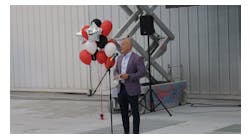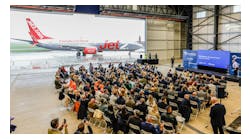The world of the professional maintenance technician is under attack. Unless leaders step forth to advocate, educate, and collaborate, the professional technician’s role in aviation will continue to be a subservient one, unappreciated and poorly compensated for the job requirements and responsibilities.
There was one organization in the past that offered hope, but it isn’t viable now. Sure there is a web site, and some members still contribute to maintaining a management firm that represents it, but it is going nowhere. The fact that it still exists, primarily in name only, is proof that many continue to see a need for an aviation maintenance organization to represent aircraft technicians.
That need has never been more prevalent. Take for instance the long-term FAA reauthorization bill that is presently being considered by Congress. One of the sticky issues surrounding the legislation is the framework for approval of foreign repair stations. If Congress is left to the guidance and bias of the many associations that lobby it, there will be fewer jobs in the States for aircraft technicians. More work will go international because costs will be less. Costs will be less because the playing field will not be level. To my knowledge, no association or group is representing this country’s technician’s position with respect to this legislation.
As a result of the growing global economy, more and more of our regulations are being influenced, if not directed, from overseas. It has always been my opinion, not necessarily shared by others, that, when our European brothers, in the form of the JAA, were able to form a successful union of its disparate members, it became as strong, if not stronger than our FAA. As a result, we are no longer leading the world in setting regulatory standards. And, many relate to maintenance.
A current example is the SMS guidelines that have emanated from Europe and ICAO. We are a signatory to the legal establishment of ICAO and as a result are committed to abiding by its direction. But SMS has such a broad brush. It sounds like a duck, quacks like a duck, but is it really a duck? The difficulty is, it appears the forthcoming regulations do not recognize the differences between operations, ownership, geography, etc., of this country’s diverse aviation system.
Applying SMS across the board is like applying 121 flight time regulations to 135 ops and air cargo. You hear plenty of screaming about that. My point is there is no consideration for the vagaries of different ops with this new SMS; much less, how such implementation will affect maintenance operations and technicians. Technicians need, and should have a direct and clear voice as to how this proposed regulation can and will effect their ability to do their jobs.
I would be remiss if I did not recognize the NBAA Maintenance Committee and the excellent work it does for its members and those other technicians it influences. It is a driving force, initiating such concepts and movements such as “Project Bootstrap.” However, it is part of a specific segment of our industry and can speak only for those it represents. I, for one, would like to see it become more independent, if possible.
In light of the foregoing, there is an organization that represents all aircraft technicians. While still in its embryonic stage, it is growing at a rapid pace. AMTSociety, which was founded by this magazine, is attempting to gather the resources necessary to represent the maintenance technician. The board, made up of your peers from various operations including carriers, MROs, manufacturers, schools, and business aircraft ops, works hard in advocating the causes of your profession. They do this on their own time, unselfishly. A self-effacing, dedicated individual, that is seeking nothing more than future success for technicians, heads the organization. As with any association, its members support it. If not already a member, I suggest you consider seriously investigate AMTSociety, and consider joining it.
If not supported, aircraft technicians, as a group, will lose their leverage. As a result, the world will pass them by. They will have no one else to blame but themselves. That will be a damn shame.


